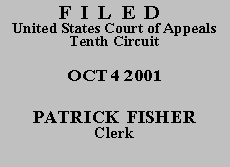

| GARY G. GARNER,
Plaintiff-Appellant, v. YELLOW FREIGHT SYSTEM, INC., Defendant-Appellee. |
|
Gary G. Garner, appearing pro se, appeals the district court's grant of summary judgment to defendant, Yellow Freight System, Inc., his former employer, on his complaint alleging defendant terminated him because of his service in the National Guard in violation of the Uniformed Services Employment and Re-employment Rights Act, 38 U.S.C. §§ 4301-33 (the "Act").
Garner, a member of the United States Army National Guard, was hired as an operations clerk with defendant in 1983. He was terminated in 1986, but did not file his complaint until November 1999. In his complaint, Garner alleged that defendant reduced his hours from full-time to part-time in 1985 shortly after he returned from his National Guard annual training requirement. He further alleged that he was terminated by defendant immediately upon his return from his annual training in 1986. Defendant denied that Garner's termination was based solely on his National Guard service and presented evidence of numerous reprimands given to Garner during his employment. See Monroe v. Standard Oil Co., 452 U.S. 549, 559 (1981) (holding, under the version of the Act in effect at the time of Garner's termination, that the Act prohibited only those acts of discrimination that were motivated solely by an employee's reserve status).(1) Defendant also asserted that Garner's claims were barred by laches because he waited more than thirteen years to file his complaint and that it was prejudiced by this delay. Defendant presented undisputed evidence that one of its key witnesses, the manager who supervised and terminated Garner, had suffered significant memory loss as a result of chemical exposure in 1996.
The district court held Garner's complaint was barred by the doctrine of laches because of Garner's thirteen-year delay in filing his complaint and the attendant prejudice to defendant.(2) Laches is an equitable defense "primarily addressed to the discretion of the trial court." Jicarilla Apache Tribe v. Andrus, 687 F.2d 1324, 1337 (10th Cir. 1982) (quotation omitted). "The trial court must find (a) unreasonable delay in bringing suit by the party against whom the defense is asserted and (b) prejudice to the party asserting the defense as a result of this delay." Id. at 1338.
Upon review, we conclude the district court properly granted summary judgment to defendant based on the defense of laches. Garner was aware of the relevant facts on which he bases his claim and the possibility that he had a claim under the Act at least as early as 1987, yet he did not commence this action until late 1999. See id. (concluding laches exists "where a party, having knowledge of the relevant facts, acquiesces for an unreasonable length of time in the assertion of a right adverse to his own"). Garner claims that he waited while, at his request, the Departments of Labor and Justice investigated his claims. This argument is unavailing because the Act does not obligate Garner to pursue his claim through any administrative agency. See Goodman v. McDonnell Douglas Corp., 606 F.2d 800, 807 (8th Cir. 1979) (holding that laches available to employer where veterans voluntarily chose to rely on government rather than secure private counsel). Garner was aware in 1987 that he was free to pursue his claim through a private attorney, knew in 1994 that neither agency would take further action on his claims, yet waited until 1999 to file his complaint. Garner's claim that he was unable to locate an attorney who would prosecute his claim does not excuse his delay. See Farries, 832 F.2d at 381.
This court AFFIRMS the district court's conclusion that laches bars Garner's claims for substantially the reasons set forth in the district court's order dated December 13, 2000. The mandate shall issue forthwith.
Entered for the Court
Circuit Judge
*. This order and judgment is not binding precedent, except under the doctrines of law of the case, res judicata, and collateral estoppel. The court generally disfavors the citation of orders and judgments; nevertheless, an order and judgment may be cited under the terms and conditions of 10th Cir. R. 36.3.
1. The relevant provisions of the Act were amended in 1994 to prohibit discriminatory actions where the employee's military status is a "motivating factor" in the decision, even if not the sole factor. See 38 U.S.C. § 4311(c)(1); Hill v. Michelin North Am., Inc., 252 F.3d 307, 312 (4th Cir. 2001).
2. The Act contains no express statute of limitations and specifically bars the use of state statutes of limitations. See 38 U.S.C. §§ 4302 and 4323(i). As a result, courts look to the equitable doctrine of laches to determine if a claim is time-barred. See Farries v. Stanadyne/Chicago Div., 832 F.2d 374, 379 (7th Cir. 1987).